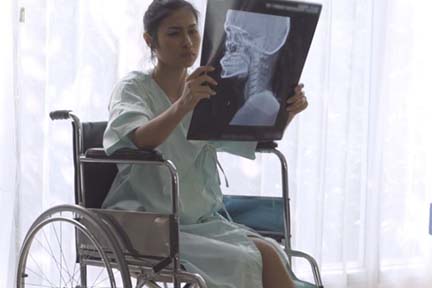Press Release FOR IMMEDIATE RELEASE: March 1, 2023 CONTACT: Chelsea Wuth, 517-241-2112, [email protected] MDHHS highlights brain injury prevention during Brain Injury Awareness Month LANSING, Mich. — Traumatic brain injury (TBI) and acquired brain injury (ABI) are leading causes of injury-related death and disability in the United States and in Michigan. The Michigan Department of Health and Human Services (MDHHS) is observing Brain Injury Awareness Month this March to raise awareness about prevention of brain injuries. “Prevention strategies can greatly reduce the risk for TBIs and death,” said Dr. Natasha Bagdasarian, MDHHS chief medical executive. “These include removing hazards in and around the home, keeping sports play safe by using protective equipment, avoiding driving in bad weather if possible, always wearing a seat belt and making sure children are secured in an age- and weight-appropriate child seat or booster seat in the car.” Brain injuries may affect cognitive, motor, sensation and emotional functions. Observable signs of traumatic brain injury may include appearing dazed or stunned, forgetting an instruction, moving clumsily, answering questions slowly, losing consciousness (even briefly), showing mood, behavior or personality changes, and being unable to recall events prior to and/or after an injury event. Falls are the leading known cause of TBI (40%) in the United States, and cause more than half (55%) of all TBIs among children ages 0 to 14 years, and 81% of all TBIs are among adults ages 65 and older. Other leading and preventable causes of traumatic brain injury include being struck by or against an object or person, motor vehicle crashes, suicide, substance misuse and assaults, including shaken baby or abusive head trauma. There were more than 1,800 TBI-related injuries in 2020 and more than 9,500 hospitalizations in Michigan. Annual costs of TBIs in the U.S. exceeds $40 billion. For more tips on preventing TBIs, visit CDC.gov. For more tips to keep your home safe, visit CPSC.gov, and Safekids.org. More information about sports concussions is available here. Additional resources for seniors for classes to prevent falls and improve mobility and independence may be found at CDC.go/steadi. |


